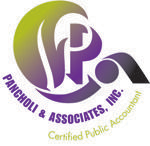FAQ
What do I need to bring when I am having my taxes
prepared?
Following is a list of the more common items you
should bring if you have them.
Income:
- - Wage statements (Form W-2)
- - Pension, or retirement income (Forms 1099-R)
- -Information on the sales of stocks and/or bonds
- - Self-employed business income and expenses
- -Lottery and/or gambling winnings and losses
- - State refund amount
- - Social Security and/or unemployment income
- - Income and expenses from rentals
- - Record of purchase or sale of real estate
- - Dependents' Social Security numbers and dates of birth
- - Last year's tax return
- -Estimated taxes or foreign taxes paid
- - Information on education expenses
- - Medical and dental expenses
- - Real estate and personal property taxes
- - Cash and non-cash charitable donations
- - Mortgage or home equity loan interest paid (Form 1098)
- - Unreimbursed employment-related expenses
- - Job-related educational expenses
- - Child care expenses and provider information And any
other items that you think may be necessary for your
taxes.
What do I do if I receive a notice from the IRS about
my taxes?
Don’t panic! the first thing to
do is carefully read the notice—to determine why it was
sent, what the IRS is requesting, and what they want you to
do. It may be nothing of importance; it may even be a notice
in your favor. After reading it you should bring it to our
attention.
What is the child tax credit?
The child tax credit is a credit of $1000 per child from the
IRS. In order to qualify the child must:
-
Be under 17 at the end of the tax
year
-
Be a citizen of the United
States
- Be your child
-
Live with you for more than half the
year
- Not be treated as the qualifying child of someone else.
What is the difference between a C and an S corporation?
A C Corporation and an S-Corporation are exactly the same in
respect to liability protection. The difference is in how you
are taxed. A C Corporation has what is referred to as a
double taxation. First the corporation is taxed, and secondly
the dividends are taxed on the shareholders’ tax
returns. An S-Corporation is not taxed at the corporate
level, only at the shareholder level. Most small businesses
are eligible to file as S-corporations. But the appropriate
election must be made.
What is a 529
plan?
A Qualified Tuition Program (QTP), also called a "529 plan,"
is established and maintained to let you either prepay or
contribute to an account established for paying a student's
qualified higher education expenses at an eligible
institution. States and eligible educational institutions can
establish and maintain a QTP. You do not get any federal
deductions for the account, but any income earned in it is
tax-free. One of the big advantages of a 529 plan is that
many states allow you to deduct some contributions to the
plan from your state tax return.
What are the differences between a Roth and a conventional IRA?
A traditional IRA lets you deduct contributions in the year you make them, and the distributions are included as income on your return when you withdraw from the IRA after reaching age 59½. A Roth IRA does not let you deduct the contributions, but you also do not report the distributions as income, no matter how much the Roth account has appreciated. With a Roth, you can exclude the income earned in the account from being taxed.
Is my social security taxable?
What are the differences between a Roth and a conventional IRA?
A traditional IRA lets you deduct contributions in the year you make them, and the distributions are included as income on your return when you withdraw from the IRA after reaching age 59½. A Roth IRA does not let you deduct the contributions, but you also do not report the distributions as income, no matter how much the Roth account has appreciated. With a Roth, you can exclude the income earned in the account from being taxed.
Is my social security taxable?
Usually if your income including social security benefits
is less than $25,000 if single or $32,000 if married, your
benefits are not taxable. If your income is higher than
those limits, there are formulas to determine what
percentage of your social security is taxable. Currently up
to 85% of your social security may be taxable.
